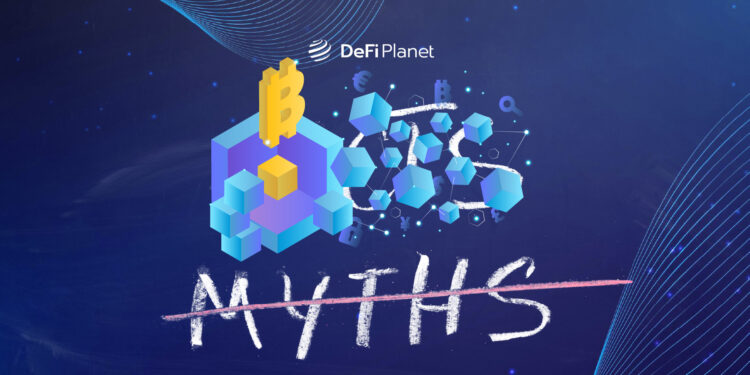Last updated on January 8th, 2025 at 11:46 am
Decentralization is a foundational principle in the crypto world, rooted in the desire to create a financial system independent of traditional authorities such as banks and governments. This concept emerged as a direct response to the shortcomings of traditional financial systems, which often lack transparency, inclusivity, and accessibility. Many people feel excluded or taken advantage of by these systems, prompting a search for alternatives. The 2008 financial crisis, in particular, highlighted the flaws of centralized finance and served as the catalyst for Bitcoin’s creation.
Cryptocurrencies present a new model where people can transact directly with one another, bypassing intermediaries. This empowers users, preserving their privacy and autonomy over their financial activities. The aim is to democratize finance, allowing individuals to control their own assets without relying on institutions that may not have their best interests at heart. Bitcoin’s whitepaper, authored by Satoshi Nakamoto, envisioned a peer-to-peer electronic cash system free from centralized control. This idea became the backbone of the crypto industry.
However, as the cryptocurrency industry has grown and evolved, it becomes essential to critically assess whether it truly delivers on its promise of decentralization. Are these digital currencies genuinely decentralized, or are we seeing a shift back toward the centralization they were designed to challenge?
The Current State of the Crypto Industry & Success Stories of Decentralization in Action
The cryptocurrency market has experienced remarkable growth, with its total value reaching $2.42 trillion as of October 2024. This represents an 86.81% increase over the past year, driven by innovations in areas like DeFi, non-fungible tokens (NFTs), and blockchain technology. Bitcoin, the pioneer cryptocurrency, holds a dominant position with a market cap of $1.34 trillion, accounting for 55.14% of the total market. Stablecoins, which play a pivotal role in maintaining liquidity, comprise 7.12% of the market.
DeFi has emerged as one of the crypto industry’s most promising advancements, showcasing the potential of decentralization in reshaping financial systems. DeFi platforms enable users to lend, borrow, and trade assets directly through smart contracts without intermediaries. Examples like Uniswap and Aave illustrate the transformative power of decentralization.
Uniswap, a decentralized exchange built on Ethereum, eliminates intermediaries by allowing users to trade directly from their wallets. Its automated market maker (AMM) model facilitates liquidity by enabling anyone to provide tokens to liquidity pools. In return, users earn a share of transaction fees, fostering community participation.
The Centralization Challenge
Despite these successes, significant obstacles remain. The biggest one is the fact that centralized entities wield substantial influence over the market.
Centralized exchanges like Binance and Coinbase are the gateways for most users. They dominate trading volume, consolidate power, and influence market dynamics. Statistics from Bloomberg reveal that as of late 2023, just eight centralized exchanges handled over 90% of global crypto trading volume. This concentration undermines decentralization by placing significant control in the hands of a few entities.
For instance, Coinbase’s 100 million verified users underscore its central role, but this also places enormous responsibility on a single entity. Centralized platforms are often prone to conflicts of interest, where decision-making prioritizes profitability over community needs. When exchanges operate as both marketplaces and liquidity providers, they may prioritize their own activities over users’ interests. The lack of transparency in centralized governance structures further exacerbates these issues, as decisions are often made without input from the community.
Market manipulation is also prevalent on centralized platforms. Practices like wash trading—where assets are bought and sold simultaneously to inflate market activity—undermine trust and transparency. A 2023 Wall Street Journal report found that a significant portion of trading volume on centralized exchanges was artificially inflated, further eroding confidence in their operations.
Security vulnerabilities are another concern. High-profile hacks, such as the 2014 Mt. Gox breach and the Binance breach in 2019, exposed the risks of centralized control. Hackers often target centralized exchanges due to their concentration of assets, resulting in billions of dollars in losses. In contrast, decentralized platforms distribute risk, making them less attractive targets theoretically.
Institutional Influence: A Double-Edged Sword
The growing involvement of institutional investors presents another layer of complexity. While institutions bring legitimacy and capital to the crypto space, they also risk centralizing control. Companies like BlackRock and financial products like Bitcoin spot ETFs have attracted billions in investment, driving adoption but potentially steering the industry away from its decentralized roots.
RELATED: Crypto ETFs May Not Be the Boon for the Ecosystem As Some Believe
For instance, Bitcoin spot ETFs attracted $12.1 billion in inflows during Q1 2024 alone, a testament to institutional interest. However, institutions often prefer centralized solutions for ease of access and regulatory compliance, which contrasts with the decentralized ethos. With their custodial services, platforms like Coinbase and Binance cater to institutional preferences, further entrenching centralization.
Regulation: A Balancing Act Between Innovation and Oversight
The push for regulation has become a significant factor influencing the trajectory of cryptocurrencies. While regulation is often seen as a way to ensure consumer protection and mitigate illicit activities, it poses challenges to decentralization. Governments and regulatory bodies around the world are grappling with how to strike a balance between fostering innovation and maintaining control over a fast-evolving financial ecosystem.
Regulatory approaches vary across regions, reflecting different priorities and perspectives. Whether cautious like the EU’s MiCA, iron-fisted like Mainland China, confusing like the United States, or friendly like Singapore and Switzerland, regulations introduce a responsibility conundrum for the stakeholders involved: crypto service providers and regulators. How can regulators ensure accountability without undermining the decentralized nature of these platforms?
RELATED: Has Crypto Met Its Promise?
Hacks and Scams: Threats to Decentralization
While DeFi platforms like DEXs aim to eliminate the vulnerabilities of centralized systems, the rise in hacks and scams within these ecosystems has exposed significant challenges to achieving true decentralization. The very systems designed to safeguard user assets and democratize financial control are, ironically, being exploited in ways that question their robustness.
RELATED: Crypto Scams Are Never Going Away. Here is Why
The frequency and scale of attacks on DeFi platforms and DEXes continue to increase, and it doesn’t look like they will stop soon. From flash loan exploits to vulnerabilities in smart contracts, malicious actors are finding creative ways to siphon off billions of dollars. According to data from Chainalysis, DeFi-related hacks accounted for the largest share of all the over $2.2 billion lost in the crypto industry in 2024.
In some cases, project creators themselves have exploited the absence of centralized oversight to execute rug pulls, where they abandon a project after draining its funds. The anonymity that decentralization affords, while valuable for privacy, also makes it easier for bad actors to disappear without accountability.
RELATED: The Impact of Crypto Scams on the Market
The growing prevalence of hacks and scams poses existential questions for the crypto industry. If users cannot trust decentralized platforms to protect their assets, the appeal of decentralization diminishes.
Overcoming Barriers to Decentralization
While the future of decentralization holds immense promise, the industry must overcome several barriers to fully realize its potential.
One of the primary obstacles is a lack of education and awareness among users. Decentralized systems often require a higher level of technical understanding compared to their centralized counterparts. To drive adoption, the industry must prioritize user education and develop intuitive interfaces that simplify the user experience.
Scalability remains a persistent challenge for decentralized platforms. While Ethereum’s transition to proof-of-stake with the Merge in 2022 marked a significant milestone, many blockchains still struggle with high transaction fees and slow processing times. Layer-2 solutions like Polygon and rollups are addressing these issues, but further innovation is needed to achieve mass adoption.
Decentralization often clashes with regulatory demands for transparency and compliance. Privacy-preserving technologies like zero-knowledge proofs offer a potential compromise, enabling platforms to verify transactions without revealing sensitive information. Striking the right balance between privacy and compliance will be crucial for the industry’s long-term success.
Final Thoughts
Decentralization remains a guiding principle for the cryptocurrency industry, representing a vision of a more inclusive and equitable financial system. While significant progress has been made, the journey toward true decentralization is far from complete. The industry must navigate challenges such as regulatory pressures, scalability, and centralization within decentralized systems to fulfil its promise.
Decentralization offers immense potential, but it also comes with responsibilities—rigorous code audits, stronger security measures, and greater community oversight are non-negotiable. The crypto ecosystem must evolve to balance trustlessness with safeguards against exploitation. Only then can it achieve the resilience and reliability necessary to redefine finance.
Finally, the promise of decentralization extends beyond finance, offering a blueprint for rethinking governance, identity, and technology. In the years to come, it will be up to the crypto community to ensure that this promise is fulfilled, creating a future where individuals, not institutions, hold the keys to their financial and digital destinies.
Disclaimer: This article is intended solely for informational purposes and should not be considered trading or investment advice. Nothing herein should be construed as financial, legal, or tax advice. Trading or investing in cryptocurrencies carries a considerable risk of financial loss. Always conduct due diligence.
If you would like to read more articles like this, visit DeFi Planet and follow us on Twitter, LinkedIn, Facebook, Instagram, and CoinMarketCap Community.
Take control of your crypto portfolio with MARKETS PRO, DeFi Planet’s suite of analytics tools.”





















